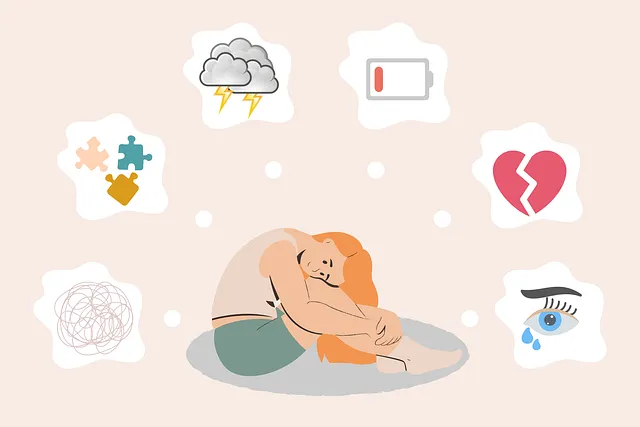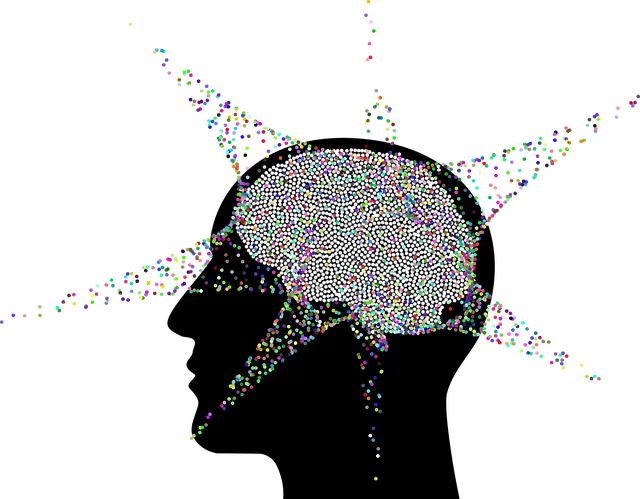Longmont Kaiser Permanente psychiatry professionals prioritize open communication, empathy, clear boundaries, and confidentiality to create a safe and supportive environment for mental wellness groups. Through structured activities, discussions on depression prevention, self-care, and community building, facilitators foster a sense of belonging where participants share struggles and victories meaningfully. Effective communication techniques, tailored language, and active listening are key to successful group facilitation, enhanced by diverse activities and member feedback. Assessing and promoting positive outcomes using various tools allows for targeted strategies that improve group therapy effectiveness and create a culturally sensitive space.
Mental wellness group facilitation plays a crucial role in supporting individuals through collaborative healing. At Longmont Kaiser Permanente psychiatry, evidence-based techniques are utilized to create supportive environments where participants can share experiences and learn from one another. This article explores essential aspects of group dynamics, communication strategies, engagement techniques, and assessment tools, offering practical insights for facilitators aiming to enhance therapeutic outcomes in a group setting.
- Understanding Mental Wellness Group Dynamics: Creating a Safe Space
- Effective Communication Strategies for Group Facilitators
- Techniques to Foster Engagement and Interaction Within Groups
- Measuring and Promoting Positive Outcomes: Assessment Tools for Group Success
Understanding Mental Wellness Group Dynamics: Creating a Safe Space

Creating a safe space is paramount when facilitating mental wellness groups. This involves cultivating an environment where every participant feels seen, heard, and respected. As a group facilitator with Longmont Kaiser Permanente psychiatry, it’s crucial to establish clear boundaries, ensure confidentiality, and model active listening. By fostering open communication and encouraging empathy among members, you can help individuals build resilience and strengthen their support networks.
Understanding the dynamic nature of group interactions is essential. Each person brings unique experiences and perspectives, which can lead to powerful insights and healing. Through structured activities and facilitated discussions, you can guide the group in exploring themes related to depression prevention, self-care practices, and overall mental wellness. This collective approach not only enhances individual well-being but also creates a sense of community, where shared struggles and victories resonate deeply.
Effective Communication Strategies for Group Facilitators

Effective communication is a cornerstone for successful group facilitation, especially within healthcare settings like Longmont Kaiser Permanente psychiatry departments. Group facilitators play a vital role in fostering an open and safe environment where individuals can share their experiences and insights. A key strategy involves active listening—facilitators should demonstrate empathy and understanding by paraphrasing participants’ statements and encouraging them to elaborate. This not only ensures everyone feels heard but also helps clarify any concerns or misconceptions.
Additionally, facilitators should employ clear and concise language tailored to the group’s dynamics and cultural backgrounds. Given the diverse nature of communities served through programs like Community Outreach and Healthcare Provider Cultural Competency Training, facilitators must be adept at adapting their communication style. For instance, producing a Mental Wellness Podcast Series can provide an opportunity to share effective communication techniques, offering valuable insights for both professionals and community members alike.
Techniques to Foster Engagement and Interaction Within Groups

Fostering engagement and interaction within mental wellness groups is crucial for creating a supportive and dynamic environment. Techniques such as active listening and open-ended questions encourage members to share their experiences and perspectives, fostering a sense of community at Longmont Kaiser Permanente psychiatry. Group leaders should also incorporate diverse activities, like role-playing scenarios or small group discussions, to cater to different learning styles and maintain interest.
Implementing successful strategies requires planning and adaptability. The Community Outreach Program’s focus on social skills training and mental health education programs design can serve as a framework for these initiatives. By regularly assessing member feedback and tailoring activities accordingly, facilitators ensure that each session is inclusive, educational, and enjoyable, ultimately enhancing the overall group experience.
Measuring and Promoting Positive Outcomes: Assessment Tools for Group Success

Measuring and Promoting Positive Outcomes plays a pivotal role in successful group facilitation, especially within the context of Longmont Kaiser Permanente psychiatry services. Assessing the impact of group therapy sessions is crucial to understanding participant progress and tailoring interventions effectively. Mental health professionals employ various assessment tools to gauge individual and collective improvements. These tools can range from structured questionnaires designed to evaluate symptoms and functioning to more qualitative methods, such as client feedback forms and observation notes. By collecting data through these assessments, facilitators gain valuable insights into the group’s dynamics, identifying areas of success and potential challenges.
Promoting positive outcomes involves utilizing assessment findings to implement targeted strategies. For instance, Empathy Building Strategies can foster a supportive environment, enhancing participants’ willingness to engage and share their experiences. Trauma Support Services may be integrated to address underlying traumas that could impact progress, demonstrating cultural sensitivity in mental healthcare practice. These tailored interventions contribute to creating a safe and nurturing atmosphere, ultimately improving the overall success of group therapy.
Group facilitation techniques, when mastered by professionals like those at Longmont Kaiser Permanente psychiatry, can significantly enhance mental wellness outcomes. By understanding group dynamics, implementing safe space practices, and employing effective communication strategies, facilitators create an environment conducive to engagement and positive interactions. The use of assessment tools allows for tracking progress and identifying areas for improvement, ensuring groups promote lasting well-being. These techniques, as outlined in this article, are essential tools in the mental health arsenal, fostering supportive communities that revolutionize care.






